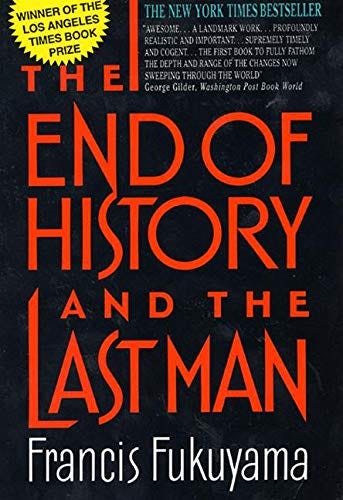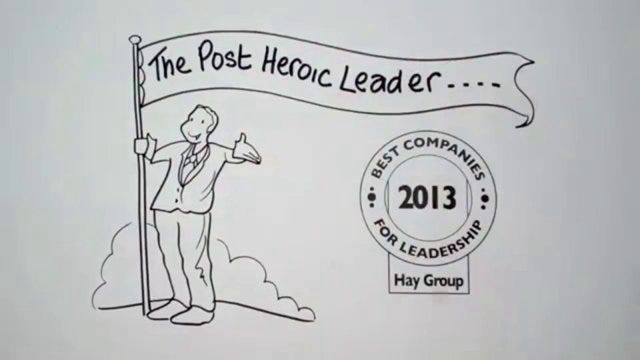The War in Ukraine caught the Western political and military establishment totally unaware. As far as it was concerned, wars involving hundreds of thousands of troops are not supposed to happen on the continent of Europe. They certainly did not expect that the people of Ukraine could offer serious resistance to the Russian military. Many Western observers regarded the border between Donbas and Russia as a 21st-century version of the Maginot Line, which would be breached in a matter of days.
Military commentators and experts associated with NATO were in no doubt that once Russia invaded Ukraine, the war would be over in a couple of weeks, if not after a few days of fighting. They all expected a ‘quick Russian battlefield victory’. For example, shortly before Russia’s invasion, the American Chairman of the Joint Chiefs of Staff, General Mark Milley, informed congressional leaders during a private meeting that Ukraine would ‘fall in 72 hours’. Western officials widely shared Milley’s defeatist sentiments on both sides of the Atlantic. When the Ukrainian ambassador to Germany asked for help, his request was politely rejected on the ground that it was pointless to send weapons since the war would be over in 48 hour.
Reading between the lines of the views exchanged amongst Western officials and military and business leaders, it is difficult to avoid the impression that they responded to the invasion of Ukraine as if it was likely to be a very short episode, an unpleasant prelude before returning to business as usual.
Business as usual was undoubtedly on the mind of Herbert Diess, the chief executive of Volkswagen, when in May 2022, he called for a negotiated settlement between Russia and Ukraine so that sanctions could be lifted to avoid damaging the German economy. This remark, made on day 75 of the War, indicated that he did not understand the tectonic shift in geopolitical affairs that the Russian invasion of Ukraine had unleashed.
As we enter the seventh month of the War, Diess’ plea – ‘I think we should not give up on open markets and free trade’ – highlights his inability to comprehend that business is no longer as usual. The fragmentation of the world economy, which was already evident during the Covid Pandemic, has significantly deepened since the outbreak of the War. Yet the Western political and corporate establishment still struggle to free themselves of the globalist illusion, which suggests that economic interests would limit or neutralise inter-state conflict.
The failure to take seriously the likelihood of a new war breaking out on the European continent is not simply the result of a failure of judgment. Since the 1990s – if not before – the leaders of the Western world fell under the sway of an ideology that distanced them from taking realpolitik seriously and the very idea of national interest. Looking back over the past 3 to 4 decades, it is evident that hitherto impressive institutions like the British Foreign Office or the American State Department had become increasingly geopolitically illiterate. As Ivo Daalder and James Lindsay pointed out in a recent issue of Foreign Affairs, Washington and its European allies suffered from the delusion that the end of the Cold War division of Europe meant the end of conflict. These NATO leaders ‘saw themselves as postmodern states that could rely on cooperation and multilateral institutions to maintain peace’1.
Geopolitical illiteracy was underpinned by the supposition that the collapse of the Soviet Union signalled the beginning of a New Era and that the world had somehow become detached from the bad old days of the past. What was significant about Francis Fukuyama’s widely publicised absurd contention regarding the End of History (1989) was its reception2. It was taken very seriously by an emerging cohort of cosmopolitan elites, who imagined that all the unresolved problems thrown up during the upheavals of the twentieth century were now more or less resolved. The idea of the End of History resonated with the prevailing presentist zeitgeist, which was determined to leave or relieve itself of the burden of the past.
Since the 1990s, the post-Cold War globalist worldview, which assumed the world had become liberated from its past, gained ascendancy. This presentist sensibility was often communicated through the ideology of Endism. This outlook turned its obsession with novelty into a veritable ideology of endism. While some reflected on the end of old wars, others declared the End of History, The End of Ideology, or The End of The Nation State. Others wrote about the end of sovereignty, the end of authority, the end of the West and the end of politics. Numerous commentators reflected on the world's end and wondered ‘how the world ends’.
The main accomplishment of the ideology of endism was to encourage society to detach itself from the past and its traditional norms. This orientation towards the past – best described as historical amnesia – significantly impacted the conduct of global affairs. For Fukuyama, The End of History projected a condition where there is ‘no struggle or conflict over large issues’ and, therefore, ‘no need for generals or statesmen’.3 And in anticipation of Diess’ response to the War in Ukraine, Fukuyama predicted that ‘what remains is primarily economic activity’. No doubt, if informed, the people of Ukraine would be puzzled by Fukuyama’s prediction that the chief danger confronting humanity in the post-history era is likely to be boredom.
If anything, the presentist zeitgeist, which ascended at the en4 of the Cold War, is far more embedded in society today than at the end of the 20th century. Some of those in charge of foreign affairs and diplomacy have come under the influence of the ‘rosy view that great power war had become unfashionable and obsolescent’. It was frequently suggested that there was no longer a need for realpolitik since great power conflict would fade away. During the 1992 presidential campaign, Bill Clinton articulated this sense of naïve optimism when he stated that the ‘cynical calculus of power politics simply does not compute. It is ill-suited to a new era’5.
As was the case with the notion of the End of History, Clinton’s New Era had as its premise the belief that conflicts, tensions and all the unresolved issues from the past had lost their relevance. The phrase – it’s the economy stupid – coined in 1992 by Clinton’s advisor James Carville – was casually exported into the domain of foreign affairs. Western foreign-policy officials assumed that open markets and close economic ties would bring all parts of the globe closer together culturally and politically. This simplistic formula was captured by the formula of – Wandel durch Handel or change through trade – adopted by successive German governments to legitimate its close economic and political relationship with Russia and China. In 2015, George Osborne, the UK’s Chancellor of the Exchequer, proudly boasted that the time had come for ‘a golden era for the UK-China relationship for many years to come’. ‘Let’s stick together to make Britain China’s best partner in the West’, Osborne told an audience of business and political leaders in Shanghai.
An underestimation of the continued salience of the unresolved tensions and conflicts of the past for the conduct of world affairs coincided with an overestimation of the power of the United States to influence global events. Freed from the burden of history, Western powers adopted a hectoring tone towards the rest of the world and behaved as if they were the only adults in the room. Their arrogance was even more striking, given their complicity in a series of major foreign policy blunders worldwide. From Iraq to Libya and Syria, culminating in the humiliating retreat from Afghanistan, Western geopolitical illiteracy has led to the decline of the moral authority of the West. As Walt noted, these adventures ‘had eroded’ America’s ‘armed forces reputation for competence and military supremacy’6.
As Daalder and Lindsay observed.
‘History was not supposed to play out this way. In the heady days after the Cold War…Washington believed that its unquestioned primacy allowed it to determine the future of other countries as well as its own. U.S. allies believed they had escaped the tragedy of great-power politics and had entered an era of self-enforcing rules. As time went on, however, habits of collaboration eroded, and the sense of common purpose faded. Rather than using the unique moment of U.S. dominance to deepen and strengthen the rules-based order, the West let that system wither’.
The squandering of American prestige and hegemony is even more remarkable because its many setbacks were inflicted by far, far weaker foes in terms of economic and military power.
The moral disarmament of the West
Hope you are enjoying Roots & Wings with Frank Furedi. Upgrade to paid
The evident geopolitical confusions of Western Governments are closely connected to their self-conscious detachment from the legacy of history. The power elites of western societies have willingly exchanged a moral clarity based on the lessons of history for the insights offered by the latest fad invented by the cultural industry and institutions of higher education. The embrace of the outlook of Endism runs in parallel with the emergence of a regime of historical amnesia. This condition has desensitised Western Elites from recalling the origins of their predicament and grasping the relationship between the present and the past. This outlook influences the way they interpret geopolitical and military issues. As noted previously, many came to believe that conflicts between nation-states had lost much of their significance in an era of globalisation.
The assertion that globalisation has rendered conflict between nations redundant was coupled with a radically new orientation towards the moral status of the nation, the military, and values such as heroism, courage, sovereignty, duty, patriotism, solidarity and sacrifice. Historically, the moral significance of these values gained definition through people’s attachment to their community and nation. However, these attachments are implicitly called into question by the supposed irrelevance of the nation in a globalised world. From this standpoint, the nation has become morally irrelevant.
Ambivalence about the moral status of the nation has led sections of the cultural elites to call into question the salience of the idea of national interest. In recent decades the term ‘national interest’ has acquired negative connotations amongst Western cultural elites. Even those in charge of foreign affairs are wary of justifying arguments on the ground that it defends national interests. Critics of the valuing of national interest claim that an assertion of national interest may be used to justify aggression. As far as they are concerned, ‘global solidarity’, multilateralism and international law are morally superior to what they represent as the narrow-minded and selfish content of national interest. As Professor Ken Minogue explained, from their standpoint, ‘nation states are outmoded survivals of a violent past, now contaminating a world evolving into an international community with its own law and morality’.
As Minogue explained, the ‘concept of national interest connects foreign policy with our identity as a people of a certain kind’. Through elaborating the meaning of this concept, people become aware of what is morally significant about their condition, what binds them together and what should be the focus of their solidarity. Without clarity on what constitutes a common interest, it is not possible for popular sovereignty to flourish and for people to feel that they are part of a genuine demos and moral community. Evidently, the Ukrainian people fully recognise the significance of their national interest; otherwise, they would have little to fight for.
The condition of historical amnesia does not merely lead to confusion about the meaning of the past; it also distances society from its legacy of traditions and norms. Its outcome is a crisis of normativity. In such circumstances, there is a threat that society may become morally disarmed. The potential for the moral disarmament of society is all the greater when its elites have become estranged from their nation. As I noted previously, ‘when leaders lose their faith in the nation, geopolitics becomes more unstable’.
Moral disarmament is the outcome of a process when a nation’s elites reject or fail to take seriously the norms and values on which their society was founded. Moral disarmament inexorably leads to the demise of moral authority and erodes the capacity of society’s rulers to act decisively. One of the regrettable outcomes of this development has been the rise of geopolitical illiteracy. Many diplomats and so-called experts attached to the American State Department or the British Foreign Office suffer from historical amnesia. They, therefore, find it difficult to grasp their country's geopolitical interests. Many of them lack language skills and imagine that in a so-called post-national world, different leaders can understand one another because they share similar cosmopolitan values.
The war in Ukraine has inadvertently exposed the moral disarmament of the West. The contrast between the determination to defend its nation stands in sharp contrast to the so-called ‘post-heroic’ mentality that prevails in the West. Many Western commentators who find the heroism and resistance of Ukrainian people difficult to grasp are probably asking, ‘if attacked would our people put up such a fight? The German post-nationalist philosopher, Jürgen Habermas, personifies the post-heroic mentality that prevails in his society. He contrasted the ‘widely admired, heroic resistance and self-evident willingness to sacrifice displayed by the Ukrainian population with what might be expected of “our”, generally speaking, Western European populations in a similar situation’.
For his part, Habermas has no inhibition about demonstrating his adoption of what he characterises as a ‘post-heroic mentality’. That is why he admonished Ukraine for failing to empathise with Germany’s reluctance to stop buying oil from Russia7. Business, as usual, trumps Ukraine’s fight for its freedom.
It is important not to confuse the moral disarmament of the West with the principled pacifism shown by relatively small groups of individuals during the First World War. Nor is it a contemporary version of the attitude of Appeasement of the 1930s. The moral disarmament of the West is not simply a response to a war or a specific crisis event. It represents a thoroughgoing rejection of the foundational norms underpinning a way of life. For many decades the political and cultural establishment of the West were willing accomplices in what became a veritable culture war against its historical norms and values. Moral norms were cast aside as outdated prejudices. The language of morality itself is often condemned as mystifying and unscientific. The act of moral judgment is castigated for being judgmental. Its moral status has been displaced by the value attached to non-judgmentalism. The disparagement of judgment conveyed through the celebration of non-judgementalism relieves public institution and their leaders from upholding moral norms.
Within the institutions of the British State, historically significant ideals of loyalty, duty and patriotism have given way to those associated with the cultural politics of identity. Even supposedly hard-core institutions like the Ministry of Defence have fallen prey to woke dogma. MoD staff are advised to be careful about using the word ‘female’ in case it offends members of the trans community. Staff working for the MoD have also been encouraged to publicise their preferred pronouns.
As Russia invaded Ukraine, sections of the MoD appeared to be more interested in exploring their sexuality and gender identity than focusing on devising a strategy for containing military aggression. During the days following the invasion of Russia, a campaign launched by British soldiers calling for the introduction of vegan uniforms illustrated the bizarre sense of priorities of these people. Seeing the infantilised behaviour of these soldiers, one is reminded of the warning issued by the Roman political philosopher Cicero when he stated, ‘to remain ignorant of history is to remain forever a child’. No doubt the MoD took its lead from the White House. On 24 March, a month after the invasion of Ukraine, the Biden Administration proclaimed its support for those affected by Russia’s action: ‘especially vulnerable populations such as women, children, lesbian, gay, bisexual, transgender and intersex (LGBTQI+) persons, and persons with disabilities’.
The issue at stake is not simply the distraction from geopolitical realities associated with obsessions about pronouns, but the difficulty Western society has in giving meaning to its historical interests. Patriotism, courage, loyalty and duty have been neglected, in part, because they are associated with the past. One of the consequences of the decades-long tendency to devalue historical consciousness is to erode the salience of the values necessary for preparing society to deal with a world where conflict is integral to people’s lives. When heroism is explicitly devalued and dismissed as a shallow posture of toxic masculinity, moral disarmament will likely have a corrosive impact on maintaining national security. The implications of moral disarmament were tragically on display in Uvalde, Texas, in May 2022, where a gunman stormed a school and murdered 19 children and two teachers. In typical post-heroic fashion, police stood by for forty minutes allowing the gunman to carry on killing children.
Footage of Events In Uvalde
This is what can happen when the police are trained to prioritise their own personal security before protecting others from harm
The war in Ukraine brings into relief the fragile state of the moral authority of Western politicians. At the same time, it is regarded by many of them as a cause through which they can revitalise a sense of legitimacy. For the first time since the end of the Cold War, it appears that there is a cause through which many policymakers believe that the West could reinvent itself as yet again a self-confident and convincing moral agent. In contrast to the morally impoverished climate prevailing in their societies, it seems to sections of the Western ruling classes as if the classical virtues that have inspired people over the centuries are still alive and flourishing on the battlefield of Ukraine. As the veteran business and economics columnist for the New York Times, Peter Coy noted, ‘Courage seemed to be dead. Then came Zelensky’. Coy reminded his readers that:
‘Courage can seem like an outdated virtue in a world of selfish genes and utilitarian economics. If we are meant to put ourselves first—to maximize our individual utility—then what room is left for heroism? How can a self be selfless? It sounds almost illogical.’
Like many of his colleagues in the Western media, politicians, and policymakers, Coy has finally found a hero who has reminded them that courage is not entirely a lost cause. ‘Volodymyr Zelensky, the president of Ukraine, has reminded us that courage is not out of date’, observed Coy.
That the West needs Ukraine to remind itself that courage is ‘not entirely a lost cause’ highlights its inability to express itself through the grammar of morality. The West needs to rearm morally. Let Ukraine inspire it to recover its nerve. But the West must not behave as a cultural parasite feeding on the heroism and sacrifices of the people of Ukraine.
Hope you are enjoying Roots & Wings with Frank Furedi. Upgrade to paid
[ii] https://www.heritage.org/defense/commentary/why-gen-milleys-ukraine-war-prediction-missed-mile
[iii] https://www.gisreportsonline.com/r/russian-military-power/
[iv] https://www.telegraph.co.uk/business/2022/05/09/volkswagen-chief-calls-ukraine-deal-putin/
[v] Daalder IH, Lindsay JM. Last Best Hope: The West’s Final Chance to Build a Better World Order. Foreign Affairs. 2022;101(4), p.122.
[vi] Fukuyama, Francis. “The End of History?” The National Interest, no. 16 (1989): 3–18. http://www.jstor.org/stable/24027184.
[vii] https://www.livescience.com/65633-climate-change-dooms-humans-by-2050.html
[viii] Fukuyama, Francis. “The End of History?” The National Interest, no. 16 (1989): p.5.
[ix] See Walt, S.M. (2018) The Hell of Good Intentions: America’s Foreign Policy Elite And The Decline Of U.S. Primacy, Picador : New York.
[x] Cited in Walt (2018) p.56.
[xi] https://www.gov.uk/government/speeches/chancellor-lets-create-a-golden-decade-for-the-uk-china-relationship
[xii] Walt (2018) pp.36-37.
[xiii] <https://plato.stanford.edu/archives/sum2018/entries/realism-intl-relations/>.
[xiv] https://www.brugesgroup.com/media-centre/papers/8-papers/905-the-fate-of-britain-s-national-interest
[xv] https://www.spiked-online.com/2018/07/23/the-flight-of-the-elites-from-the-nation-state/
[xvi] https://www.resetdoc.org/story/jurgen-habermas-war-indignation-west-red-line-dilemma/
[xvii] This point is well observed by Slavoj Žižek in https://www.project-syndicate.org/onpoint/european-response-to-ukraine-war-test-for-climate-other-crises-by-slavoj-zizek-2022-05?utm_source=Project+Syndicate+Newsletter&utm_campaign=d26a7ed864-covid_newsletter_05_11_2022&utm_medium=email&utm_term=0_73bad5b7d8-d26a7ed864-104993029&mc_cid=d26a7ed864&mc_eid=3ff8ccdea0 .
[xviii] https://www.thetimes.co.uk/article/mod-tells-staff-to-state-name-rank-and-gender-pronoun-rcbwcrw5r
[xix] https://www.spiked-online.com/2022/02/25/the-security-services-have-gone-woke/
[xx] https://claremontreviewofbooks.com/why-are-we-in-ukraine/
[xxi] https://prospect.org/justice/why-uvalde-cops-were-too-cowardly-to-charge-a-mass-shooter/
[xxii] https://www.nytimes.com/2022/05/13/opinion/courage-heroism-economics.html.
Daalder IH, Lindsay JM. Last Best Hope: The West’s Final Chance to Build a Better World Order. Foreign Affairs. 2022;101(4), p.122.
Fukuyama, Francis. “The End of History?” The National Interest, no. 16 (1989): p.5.
Fukuyama, Francis. “The End of History?” The National Interest, no. 16 (1989): p.5.
See Walt, S.M. (2018) The Hell of Good Intentions: America’s Foreign Policy Elite And The Decline Of U.S. Primacy, Picador : New York.
Cited in Walt (2018) p.56.
Walt (2018) pp.36-37
This point is well observed by Zizek in https://www.project-syndicate.org/onpoint/european-response-to-ukraine-war-test-for-climate-other-crises-by-slavoj-zizek-2022-05?utm_source=Project+Syndicate+Newsletter&utm_campaign=d26a7ed864-covid_newsletter_05_11_2022&utm_medium=email&utm_term=0_73bad5b7d8-d26a7ed864-104993029&mc_cid=d26a7ed864&mc_eid=3ff8ccdea0 .








